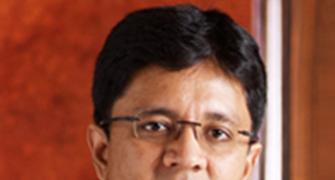The venture capital/private equity industry needs to be encouraged as such investments create jobs and help establish companies in new sectors.
There is also a strong case for incentives for investors in these funds, says Saurabh Srivastava, chairman of the Indian Venture Capital and Private Equity Association, in an interview with Business Standard's Vandana Gombar. He also talks about the growth trend in the industry. Excerpts:
How has the venture capital/ private equity industry fared in this year so far? There seems to be some rise in activity?
We are still collecting the numbers. The year started on a slow note but has started picking up pace. Excluding real estate, we did about $14 billion worth of deals in 2007, which declined to $11 billion in 2008. We will end this year at the same level as last year or marginally lower.Is there a shadow of the Satyam fraud on new deals? Are investors more cautious about Indian companies?
Global PE investors understand that frauds will happen in any country. Further, Satyam is a baby fraud compared to the likes of Enron, WorldCom and Madoff.It is unfortunate that this fraud has occurred in an industry which is the model of good governance in India. However, PE companies have much more access to and do much more diligence on companies before investing than retail investors can in a public company.
Hence, they are more confident of discovering any problem in a company. In fact, if Satyam was taking in private equity, the fraud would have been discovered much sooner.
What are the key factors driving this increase in activity?
Well, people have to put money somewhere and there are not many countries that are giving out positive signals as India. Our growth rate continues to be healthy and the World Bank estimates India's growth rate for 2010 at 8 per cent, even ahead of China's at 7.7 per cent.
So you have a lot of prospective new entrants seeking data and insights from you?
There are not that many new entrants because most of the global funds are already here.
Also, most of those who were not here have been mauled in their own markets and are not in a shape to look at new geographies.
Which are the exciting sectors for investment?
There are a number of exciting sectors the energy sector looks promising (it accounted for about a fifth of the deals last year). Then there is telecom, education, healthcare, retail, infrastructure, hospitality, IT & ITeS and media & entertainment.
What do you think of this trend of secondary deals in the private equity space?
It reflects a maturing of the system. It is a good trend and we should have more of it. When a 5- or 7-year fund is nearing the end of its term and there is still some juice left in that investment, it can be passed on to a new fund. Developed markets have a lot more of such deals.
Are all the active funds registered with the Securities and Exchange Board of India?
Sebi would like every venture capital fund to register, but such registration comes with restrictions on investments.
Such government-determined directives are unheard of in the rest of the world and actually drive away investment because investors in VC/ PE funds need the freedom to invest in the areas of their choice and hedge their risks in the manner they deem appropriate.
Also, how can anyone, leave alone government, predict what will be the hot areas for innovation and investment tomorrow? The result is that domestic funds, which also face this restriction (by being denied tax pass-through), are unable to raise money from investors and foreign funds bypass the system.
They bring their investment as foreign direct investment through Mauritius. The result is that we end up pushing away investment which could create more jobs and add to growth.
So how do you promote PE funds?
We have requested the government to create a policy framework that would encourage the creation of a domestic asset class for VC/ PE funds by allowing pension funds, insurance companies, banks etc to invest in VC/ PE funds. This is what has created the VC industry in America.
Also, like many other countries, tax breaks can be considered for investors in early stage companies.
Venture capital is not hot money. It creates new jobs and new companies. We have also requested for streamlining such areas as registration, clarity on capitalisation and removal of anomalies that confuse minority protection and affirmative rights sought by VCs with change of control.








